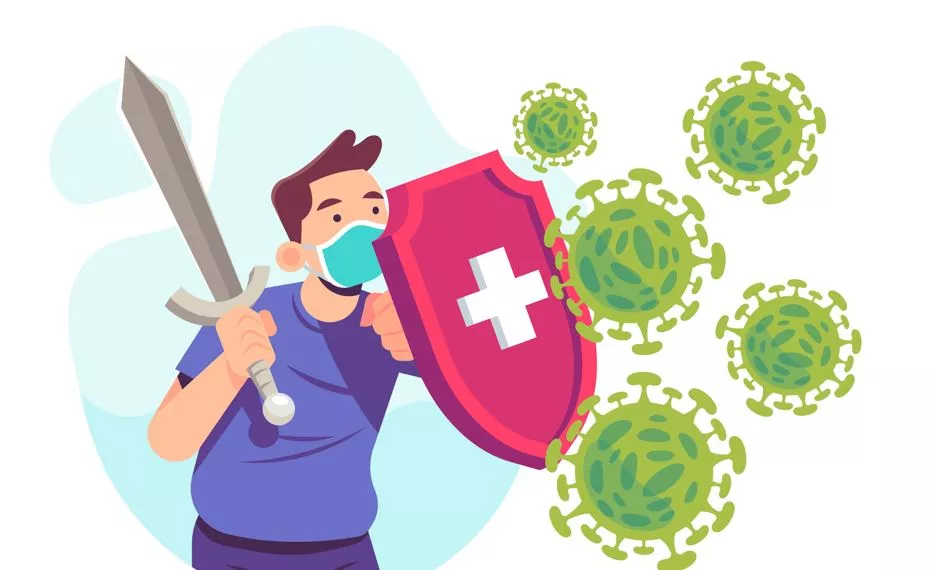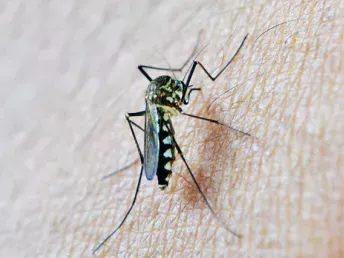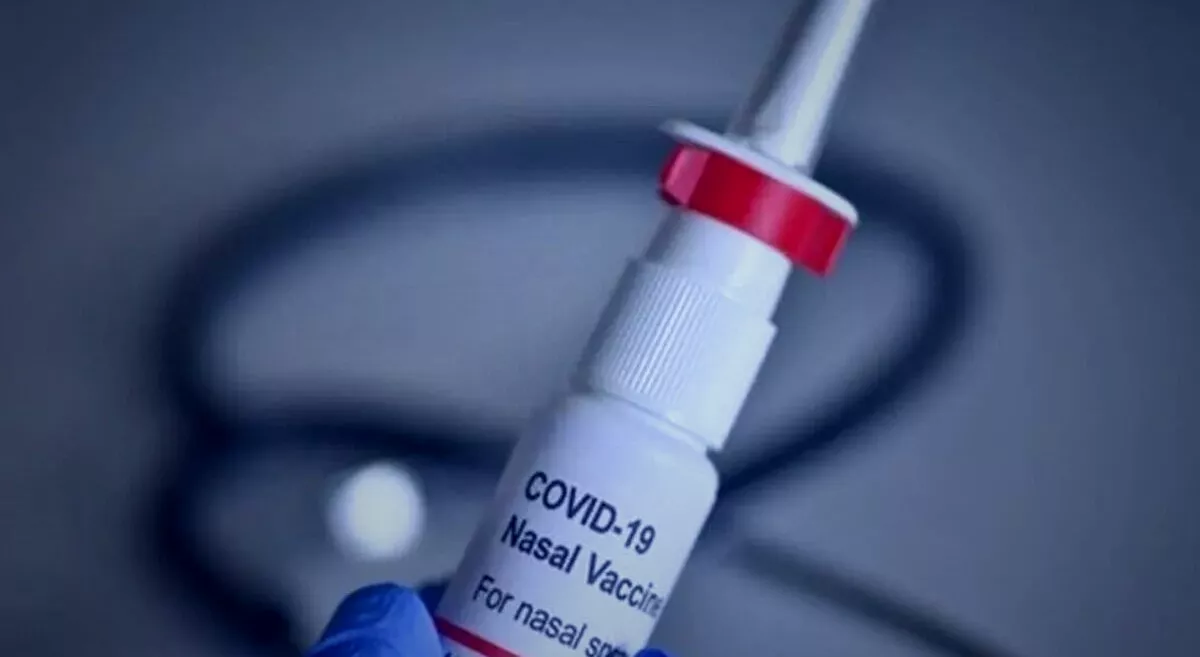As the world is constantly evolving with new infectious diseases, a recent cause for concern has been the Human Metapneumovirus or HMPV. Although this virus may not be as serious as Covid 19, it has the potential to impact a lot of people considering its growth rate in population. This blog aims to enlighten readers on what HMPV is, its symptoms as well as transmission and prevention, and why being informed about this virus can be vital.
What is Human Metapneumovirus (HMPV)?
HMPV is classified as a respiratory virus and is a part of a family called Paramyxoviridae which was discovered in 2001. HMPV usually targets the respiratory tract and can cause a spectrum of illnesses that range from a mild cold to severe respiratory illnesses. It can especially prove to be harmful to children, senior citizens or anyone with a weaker immune system as they will be more at risk of complications.
Recently, HMPV hit the headlines in India with the confirmation of three new cases. These cases highlight the virus's potential to spread in regions of high population density and therefore emphasize the requirement of ample measures and caution to tackle it.
How does HMPV spread?
HMPV is very contagious and can be contracted through respiratory droplets released by a sick person's cough or sneeze. It is more likely to spread when a person comes into contact with a contaminated surface and then touches their face, particularly the mouth, eyes, or nose. HMPV can also be spread when someone kisses or shares utensils with an infected person
Symptoms of HMPV Infection
The symptoms of HMPV can vary depending on the individual’s age, health condition, and immune response. Some of the common symptoms are:
● Mild Symptoms:
- Runny nose
- Cough
- Sneezing
- Fever
- Sore throat
● Severe Symptoms:
- Shortness of breath
- Wheezing
- Difficulty breathing
- Bronchiolitis (inflammation of the small airways)
- Pneumonia
In severe cases, hospitalization may be required, especially for infants, older adults, and people with underlying health conditions such as asthma, chronic obstructive pulmonary disease (COPD), or heart disease.
Who is at Risk of HMPV?
Even though anyone can come down with HMPV, certain groups are at higher risk of a severe case:
- Infants and young children: They do not have developed immunity and thus are more prone to this infection.
- Elderly people: Immunity also declines with ageing, making older people more vulnerable to it.
- People with severely weakened immune systems: Patients of cancer or HIV/AIDS. Or the one who uses immunosuppressive drugs is at increased risk of the severity.
- Patients with Chronic respiratory and cardiac conditions: Pre-existing disease can aggravate the disease further.
How to get diagnosed with HMPV?
HMPV is often diagnosed by using lab tests such as PCR (Polymerase chain reaction) assays or antigen detection tests because it's difficult to determine by the clinical features which would include a resemblance of the Respiratory Syncytial Virus (RSV) or influenza-like infection.
Can the HMPV Virus be Treated?
To date, there are no specific treatments available to cure HMPV. The management primarily aims at relieving symptoms, which involves:
- Staying hydrated
- Alleviate the discomfort associated with pain and fever by using over-the-counter medications.
- Treatment might involve supplemental oxygen or mechanical ventilation and resting in several cases.
How to Prevent from getting HMPV?
Now, there is no HMPV vaccine available, and thus these steps should be taken to minimise the risk of getting infected:
- Practice Good Hygiene:
- Wash your hands thoroughly with soap, creating a lather for at least 20 seconds to ensure effective cleaning.
- When in a hurry and there is no soap and water, try using an alcohol-based sanitizer that contains alcohol of at least 60%.
- Avoid Close Contact:
- Do not shake hands and maintain a distance from someone suffering from a respiratory disease
- Also, avoid sharing personal items like utensils, cups, or towels.
- Surfaces Should Be Cleaned and Disinfected:
- To avoid getting infected, keep cleaning the commonly touched surfaces like doorknobs, light switches, elevator switches etc.
- Cover Your Coughs and Sneezes:
- If you or someone else coughs or sneezes, cover your mouth and nose with a tissue or your elbow, and dispose of the tissue immediately.
- Be at Home if You’re Sick:
- If you feel sick, it is advisable to take some time off to stop spreading the virus. Do not get in contact with other people.
Why Awareness is Important?
It is important to note that HMPV is yet to be globally recognized like most viruses are, but its treatment can be critical to certain sections of society. Thus, it is crucial to raise awareness about it, as it can:
- Help individuals recognize symptoms early.
- Encourage the adoption of preventive measures.
- Have fewer cases of virus spread in a community.
- Advise the healthcare providers and the policymakers on the most practical ways of using the resources that are available to them.
No Need to Panic
It’s important to remember that HMPV is not a new virus. Discovered in 2001, it has been studied extensively and is a known respiratory virus. HMPV is generally mild for most individuals, resembling a common cold. Severe cases are rare and typically occur in high-risk groups such as infants, older adults, or individuals with weakened immune systems.
By staying informed, practicing good hygiene, and adopting preventive measures, you can protect yourself and your loved ones. With awareness and caution, there is no need for panic regarding HMPV. Let's focus on spreading accurate information and reinforcing confidence in managing such health concerns.
Frequently Asked Questions about HMPV
1. How severe is HMPV?
Although HMPV is generally mild, it can cause severe respiratory illnesses in infants, older adults, and those with underlying medical conditions. Prompt diagnosis and treatment are essential.
2. Can HMPV infect healthy adults?
Yes, HMPV can infect anyone, even healthy adults. Symptoms are typically mild and resemble a common cold in this population.
3. Is there a vaccine for HMPV?
No, HMPV does not have a vaccine yet. Good hygiene and keeping away from individuals with the virus are the main preventive measures.
4. How is HMPV diagnosed?
HMPV diagnosis involves laboratory tests like PCR assays or antigen detection from respiratory samples to identify the virus.
5. What do I do if I suspect that I or someone in my family has HMPV?
If symptoms are mild, manage them with rest, hydration, and over-the-counter medications. Don't hesitate to reach out to the medical personnel if symptoms worsen, especially for children, elderly or comorbid individuals as it can be concerning.
Final Thoughts
In this new interconnected world, it has become more and more important for us to stay updated about potential health hazards like the HMPV. Knowledge of the virus and taking appropriate preventive measures will help prevent ourselves and our dear ones from suffering from the full-blown implications of the disease. Let's spread awareness of the virus.








